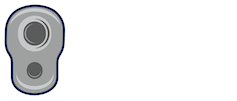For me, the realization that there is no "shooting form" just aligned sights on the target before I break the shot. USPSA/IDPA will put you in a lot of funky positions, my goal is to always be able to "call" my shots.
Also, the fact that I dont actually need to shoot faster to be faster. All the little things that go into my time on a stage was more important than firing the gun fast. I once RO'd TGO at Rio Salado during a club match back in 2001, he had a knee brace on and when he finished....I could have swore that it was the slowest thing I had ever seen. My Dad was with me and he taped TGO running the stage. I watched it over and over and could not believe how smooth and deliberate he was. He won the stage. It wasn't that he was shooting fast, it was that he did everything else to perfection.
Also, the fact that I dont actually need to shoot faster to be faster. All the little things that go into my time on a stage was more important than firing the gun fast. I once RO'd TGO at Rio Salado during a club match back in 2001, he had a knee brace on and when he finished....I could have swore that it was the slowest thing I had ever seen. My Dad was with me and he taped TGO running the stage. I watched it over and over and could not believe how smooth and deliberate he was. He won the stage. It wasn't that he was shooting fast, it was that he did everything else to perfection.







